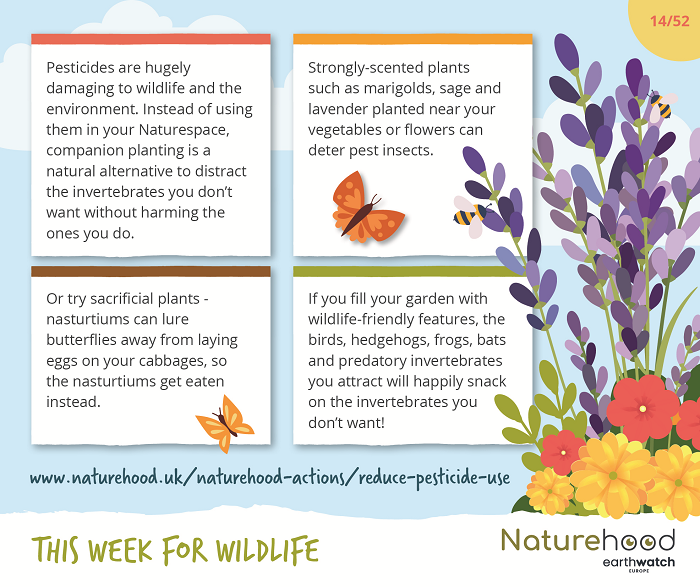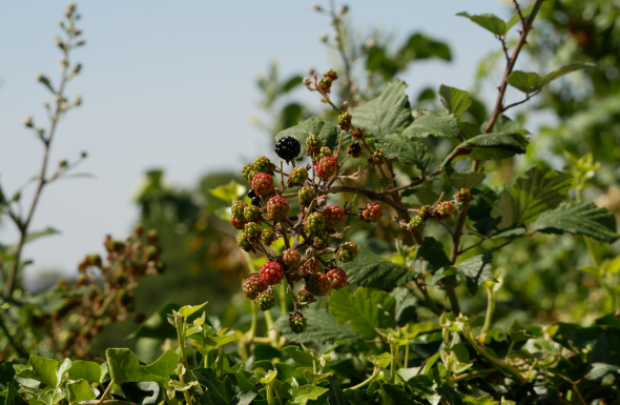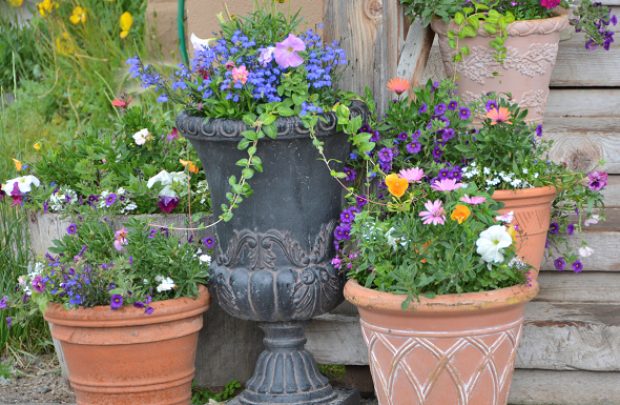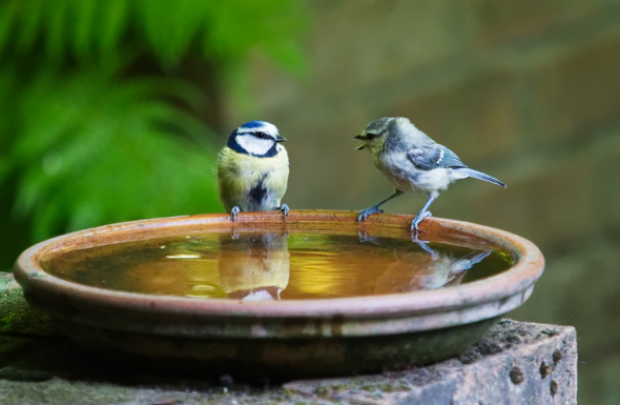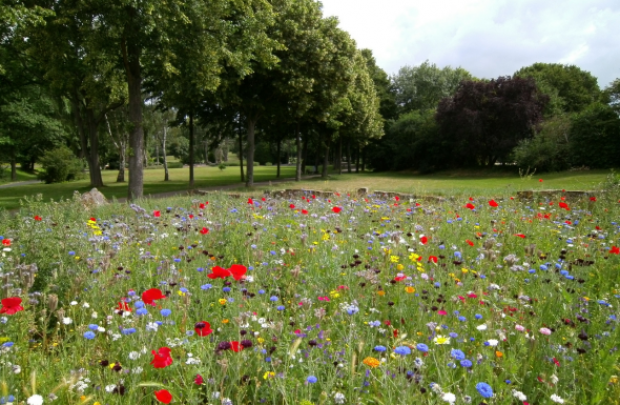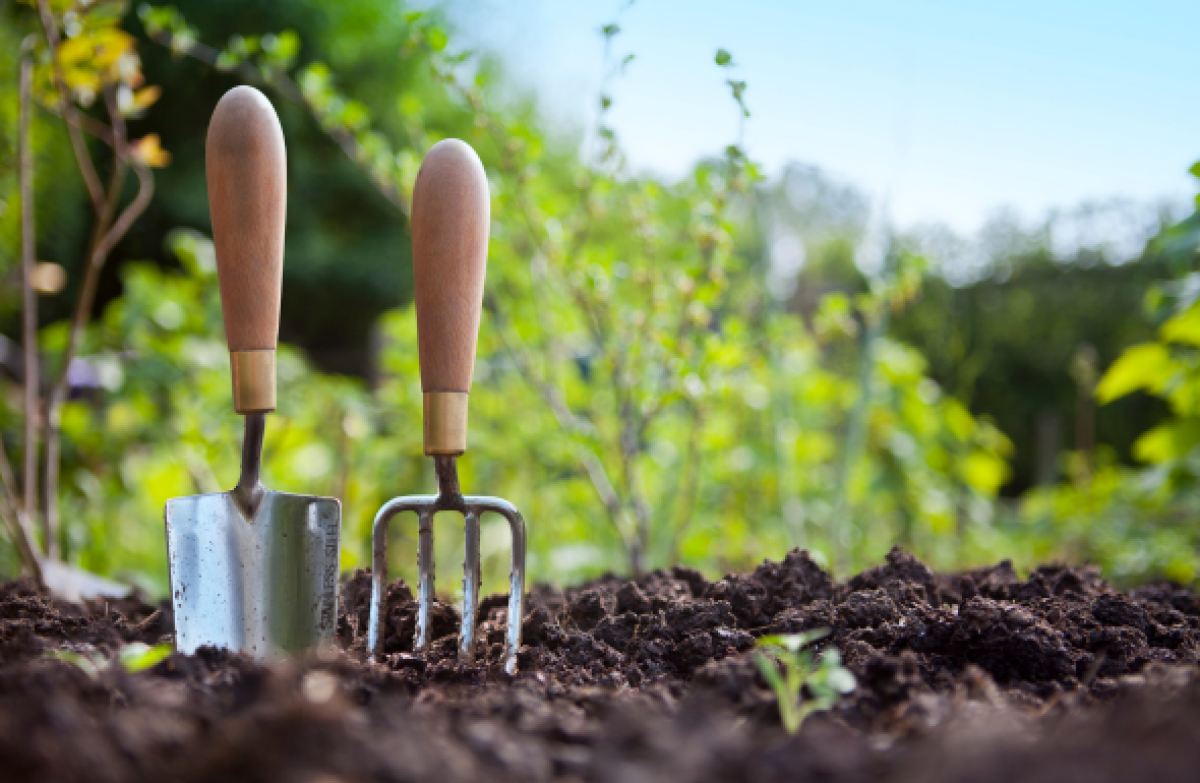
How to help UK wildlife in April
As the beauty of spring begins to unfold around us in April, it's one of the best times to get into action for wildlife. Plants are beginning to grow, birds are nesting and insects such as butterflies and bees are emerging from hibernation (or torpor).
Here's four actions for local wildlife you can do in April.
Use companion planting instead of pesticides
Companion planting is a natural alternative to using pesticides in your Naturespace, which are hugely damaging to wildlife. This method involves planting distraction or sacrificial plants for invertebrates so they don't harm the plants such as vegetables that you wish to protect.
Find out more on how to use companion planting here.
Use peat-free compost
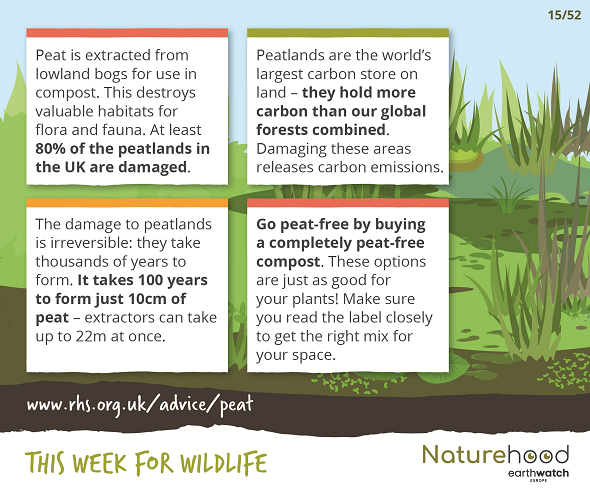
If you're getting back into gardening this month, use peat-free compost for your plants and flowerbeds. It is vital that peat is not removed from our peatlands as we need it for tackling both climate change and for wildlife that depend on this unique habitat for survival.
Removing peat to create compost permanently damages peatlands and releases carbon emissions that contribute to climate change.
Grow a green wall
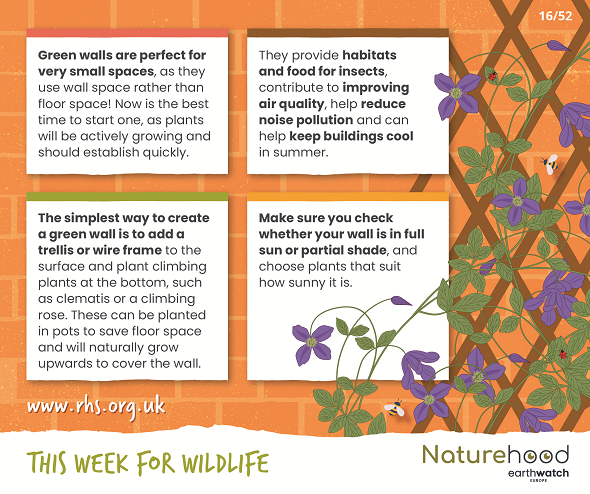
Growing a green wall is an excellent option for helping wildlife if you don't have much outdoor space. The easiest way to start a green wall is by setting up a trellis or wireframe and planting climbing plants such as clematis or climbing rose.
The RHS have guidance on creating green walls, find out more here.
Set up a water butt
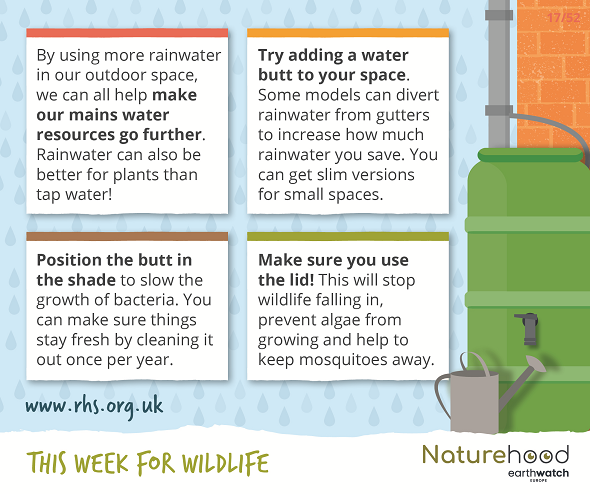
One way to save water, especially if you are a keen gardener, is to set up a water butt in your Naturespace. Water butts collect rainwater which can then be used for watering plants, filling bird baths or topping up ponds. Rainwater is better for plants and for wildlife. But always use the lid, to ensure wildlife doesn't fall in!
The RHS has a guide on collecting, storing and reusing water in your garden, find out more here.
For more tips and ideas on how you can help our wildlife every week of the year, sign up to our newsletter or follow us on Facebook.
